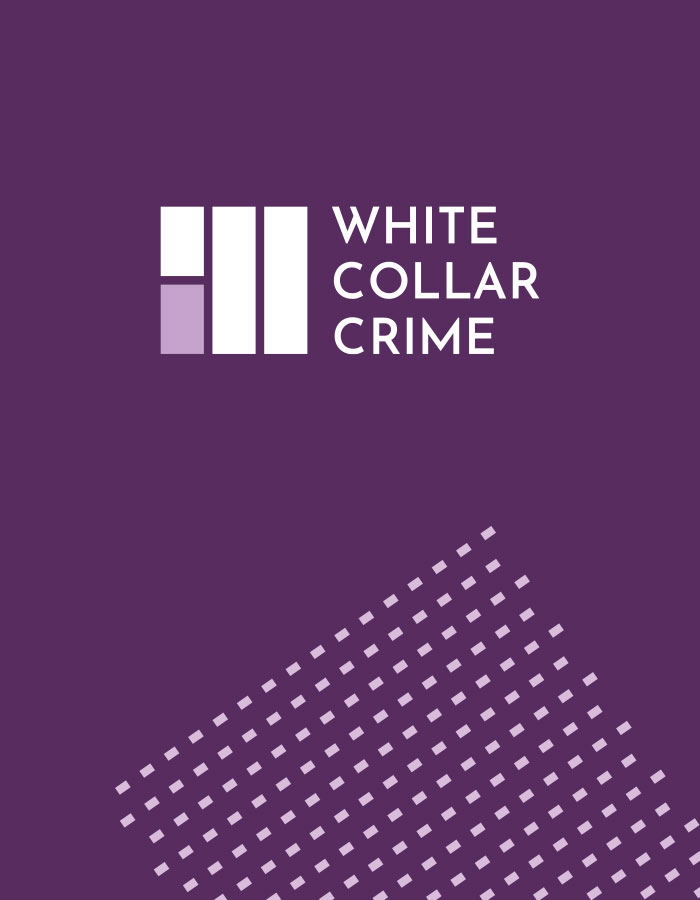Speed read: Natasha Reurts discusses the extension to the moratorium period and questions whether a built-in safeguard exists in the requirement to demonstrate that the case has been investigated diligently and expeditiously.
The Criminal Finances Act 2017 (‘the Act’) represents a significant advancement in the approach to investigation and prosecution of financial crime in the United Kingdom (‘UK’). Three provisions of the Act modify the money laundering reporting regime in the Proceeds of Crime Act 2002 (‘POCA’). These amendments include the introduction of an information sharing regime affecting the regulated sector and, the topic with which this piece is concerned, the power to extend the moratorium period following a Suspicious Activity Report (‘SAR’).
The new moratorium regime
Section 10 of the Act which inserts section 336A into POCA, provides for the extension of the moratorium period beyond the current 31 calendar days. Section 336A of POCA will empower the Crown Court, upon an application from a senior office of law enforcement,[1] to extend the moratorium period if the Court is satisfied of the following four conditions. First, that “an investigation is being carried out in relation to a relevant disclosure (but has not been completed)”.[2] Secondly, that “the investigation is being conducted diligently and expeditiously”.[3] Thirdly, that “further time is needed for conducting the investigation”.[4] And, lastly, that “it is reasonable in all the circumstances for the moratorium period to be extended.” [5] Section 336A(5) contains the mechanism for a senior officer to make an application for an extension on more than one occasion with the important proviso appearing in section 336A(7) that
“…the court may not grant a further extension of a moratorium period if the effect would be to extend the period by more than 186 days (in total) beginning with the day after the end of the 31 day period…” [6]
The effect of the amendments are to extend the current 31 day period within which the reporting entity is required to ‘hit the pause button’ on the transaction or prohibited act by up to 7 months.[7]Application to the Court is required before the expiry of each 31 day period.[8] The potential commercial impracticability of such a delay is canvassed below.
Section 10 of the Act also inserts section 336B into POCA. Section 336B provides supplementary information in relation to an application to extend the moratorium period. Interestingly, section 336B(3) provides that the Court has the power to exclude, “from any part of the hearing”, any interested person and anyone who represents the interested person.[9] An interested person is defined widely. Section 336D(3) of POCA defines the term as “the person who made the relevant disclosure, and (b) any other person who appears to the person making the application under section 336A to have an interest in the relevant property.”[10] ‘An interest’ is not defined and will be fact-specific. At a minimum, it would include the regulated person who submitted the SAR, any one appearing to have a legal or beneficial interest in the suspected criminal property and possibly others named in the SAR. Naturally, it would also include legal representatives and it is likely that such applications for exclusion will be contested as it is the first port of call in resisting an extension application.
Consequences of an extended moratorium period
The rationale for the introduction of the power to extend the SAR moratorium period is attributed to the insufficient amount of time the NCA, and other law enforcement authorities, have to respond to the intelligence provided by the private sector. This is particularly so in complex cases where information might be sought from overseas. By extending the moratorium period the hope is that law enforcement agencies will be better placed to make use of the intelligence provided in a SAR. In short, law enforcement should have sufficient time not only to make more informed decisions but to determine whether or not to apply for property freezing orders.
The Government’s impact assessment specific to the SARs moratorium extension[11] details the proposed costs, benefits and risks associated with the extension powers. As to costs, the assessment addresses the court costs involved in attending the Crown Court for extension applications and estimates an annual cost of £38,925.[12] Setting aside questions of accuracy of the estimated cost, the cost in respect of time and money on an already resource- strained organisation such as the NCA is not fully canvassed or addressed. Moreover, the impact assessment is silent on details of costs incurred in returning to the Crown Court, in theory on six separate occasions, seeking further extensions of the moratorium period. The impact assessment is also silent on another costs issue – the potential costs liability incurred following an unsuccessful extension application. Can a non-excluded interested party to the litigation recover costs as against UK law enforcement authorities following an unsuccessful extension application?
Despite well placed intentions to better the money laundering reporting regime, the consequences for business can be problematic and the costs dire. Increasing the moratorium period by up to a further 6 months has concerned entities operating in the regulated sector, especially those whose work is time critical and high value. Aside from reputational costs[13] two further potential consequences, which go beyond the obvious practical and commercial challenges, can be identified.
First, reporting entities may be discouraged from filing a SAR in fear of such an extensive moratorium period. Alternatively, at the very minimum would-be reporters will now be more cautious when it comes to submitting SARs. Put simply, it is arguable that with the increased potential for transactions to be ‘killed off’, cautious reporters may want to have their suspicions either confirmed, or at a minimum, corroborated by shared information before submitting a SAR and potentially exposing their firm, transaction and client to a 6 month interruption. Despite concerns that fear of practical delays will dissuade entities from submitting SARs, it is important to remember sections 330 and 332 of POCA which impose a legal duty on the regulated sector and nominated officers to submit a SAR when a money laundering suspicion arises. Failure to do so may expose the individual/entity to criminal liability.
Secondly, there exists the potential for increased litigation. Parties, albeit in a small number of cases,[14] have previously sought the assistance of the Courts, in the form of declaratory relief, in order to side-step the existing moratorium provisions in POCA. Although this relief is only provided in exceptional circumstances, parties may well turn to the Courts, in greater numbers, to seek declaratory relief when consent is withheld in the first instance.
Moreover, such a significant extension of the moratorium period will make it increasingly difficult for the reporting entity to keep the reason for delay in completing the transaction from the client. Consequently, the risk of falling foul of the tipping off provisions of POCA is enlarged.
As we are yet to see how the new regime will play out in practice, unfortunately regulated entities who may be affected by such an enlarged risk will have to rely on NCA and Crown Court recognition of such difficulties and impracticalities caused by the extended moratorium period. However, on one view, a safeguard has been built into the extension scheme; namely the requirement for the law enforcement senior officer seeking the extension to satisfy the court, amongst the conditions stated above, that the investigation is being conducted ‘diligently and expeditiously’.
A Built-in Safeguard?
Criminal law practitioners, particularly those familiar with police bail and custody time limits, will recognise the threshold requirement of conducting investigations diligently and expeditiously in applications for extensions. Indeed, a similar requirement appears in the Policing and Crime Act 2017[15] and the Prosecution of Offences Act 1985, designed to protect unconvicted defendants by placing a legal burden on the prosecution to progress cases with due diligence and expedition.
Principles and case law in relation to custody time limits and the requirement to proceed with due diligence and expedition can be used as a helpful starting point to infer what the Crown Court may have regard to with respect to moratorium extension applications.
In R v Governor of Winchester Prison, ex parte Roddie [1991] 2 All ER 931, the Court held that an objective test applies with respect to the requirement. It is insufficient for the prosecution to state that they have ‘done their best’ to investigate and progress the matter in difficult circumstances, which includes staff shortages.[16] However, it is not uncommon to see the State being afforded a wide margin in seeking extension applications. This trend is particularly discernible in areas associated with criminal property, such as asset forfeiture applications. Thus, whether the deference to difficult circumstances will be extended to resource limitations more generally, in the context of NCA investigations, is an open question.
Moreover, the regulated sector may draw comfort from the evidential difficulty a senior law enforcement officer would encounter in seeking a further extension (i.e. the second 31 calendar day extension) to the moratorium period. Arguably, the third, fourth, fifth or sixth application for an extension to the moratorium period will have to be substantiated with fresh evidence of due diligence and expedition. This could well present difficulties further down the extension track. Accordingly, whilst the commercial implications of a lengthy extended moratorium period are likely to cause concern the provisions require enforcement authorities to progress the investigation in a timely and efficient manner. Anything to suggest that this is not happening can be used by practitioners as ammunition with which to resist any further 31 calendar day extension.
[1] This is defined in the Act and may include a member of the police, HMRC or the NCA.
[2] Section 336A(1)(a).
[3] Section 336A(1)(b).
[4]Section 336A(1)(c).
[6] Section 336A(7).
[7] Inclusive of the initial 31 day moratorium period.
[10] Section 336D(3)(a)-(b).
[11] Home Office, Impact Assessment SARS Moratorium Extension (Revised) (10 January 2017 – Updated) available at: <http://www.parliament.uk/documents/impact-assessments/IA17-001B.pdf>.
[12] Ibid, at 6. On the estimate that each extension application would take, on average, half an hour in length and cost £225.
[13] Ibid, at 8.
[14] See, for example, NCA v N and Royal Bank of Scotland plc [2017] EWCA Civ 253.
[15] For example, see section 63 of the Act, which amends Part 4 of the Police and Criminal Evidence 1984 Act (‘PACE’).
[16] See also R (Raeside) v Luton Crown Court [2012] 4 All ER 1238.







